Kitchen Caddies and Bags
Did you know? - you can visit a Council library at Greenacres, Semaphore or Enfield and collect a roll of bags or a caddy from the Council desk during opening hours.
Port Adelaide Enfield supplies residential premises with a kitchen caddy and compostable bags to make it easy for residents to divert food scraps into the green lid bin. Approximately 40% of household waste is food representing the best opportunity to reduce landfill.
Food scraps are placed into the kitchen caddy lined with a compostable bag and every 2 - 3 days simply tie the bag and put in the green lid bin.
To request a delivery of compostable bags or to a replacement kitchen caddy, please complete the online application form.
City of PAE residents can collect a roll of 75 compostable bags and a kitchen caddy from the City of PAE Libraries and Civic Centre during opening hours.
.
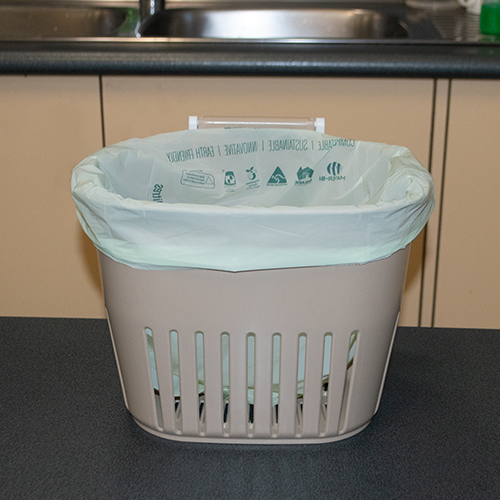
|
|
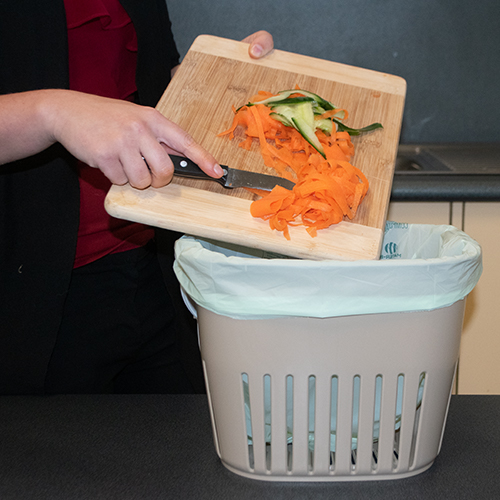
|
|
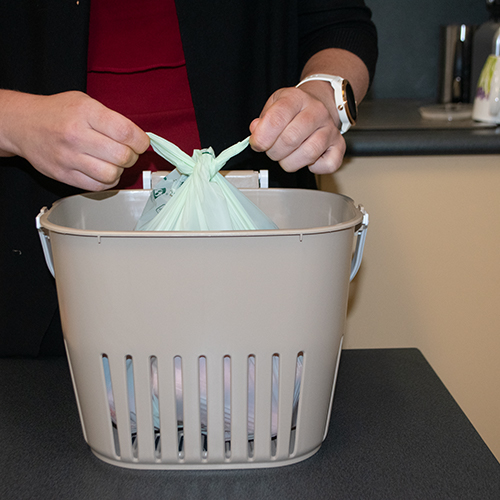
| Step 3Remove the bag (with contents) every 2-3 days, tie a knot in the top. |
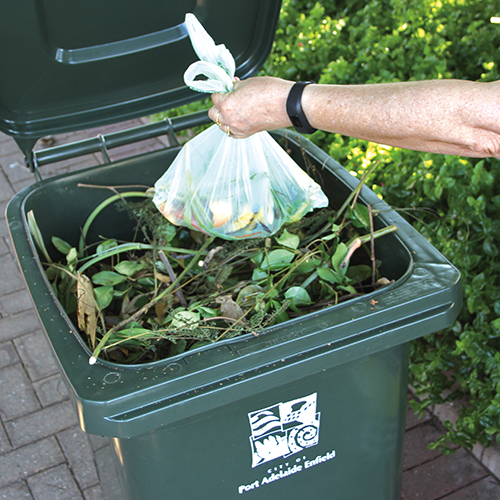
| Step 4
|
Food that can go into the organics bin includes:
- Baked goods including bread and cakes
- Dairy goods including cheese, cream and yoghurt
- Fruit and Vegetables- Peelings, fruit including citrus and vegetable scraps
- Hair
- Meat and Bones- Cooked or raw including bones
- Seafood- Fish bones, scales, oyster shells and old fishing bait
- Tea Bags and coffee grounds
- Tissues, paper bags and pizza boxes with food remains
If it grows it is good to go. Plastic wrappers, plastic cling film and plastic bags must not go in the bio basket as they do not compost.
Items suitable for composting include:
- vegetable scraps;
- bread scraps & egg shells;
- weeds and lawn clippings;
- leaves, bark and twigs;
- sawdust (preferably not radiata pine);
- cotton rags, hair and wool;
- butcher's paper, tissues and serviettes;
- newspaper and cardboard (torn up);
- wood ash (not from the incinerator);
Remember that large amounts of one kind of material do not make good compost, a variety of materials produces better compost.
While meat scraps are rich in nutrients, they are not suitable for composting as they can produce odour and attract vermin, however these can be placed in your green bin.
220 Litre "Gedye" compost bins can be purchased through Council at a subsidised price $43.00 (including delivery). The diameter is 700mm x 750mm height and payment can be made at any Council Office. The bins have an open bottom, which must be in contact with soil to allow drainage of liquid and entry of worms and other organisms.
Composting significantly reduces household waste and is great because it:
- provides a valuable soil improver, mulch and fertiliser for the garden;
- improves drainage of heavy clay soil;
- conserves water in light sandy soil;
- improves soil structure;
- returns nutrients to the soil; and
- increases aeration of soils and encourages the presence of earthworms.
